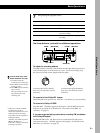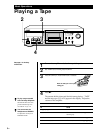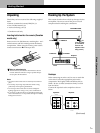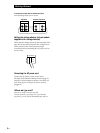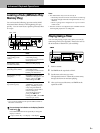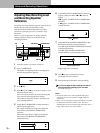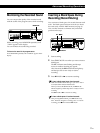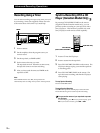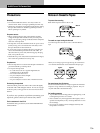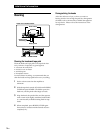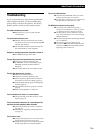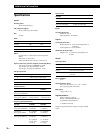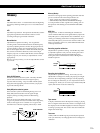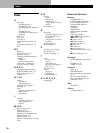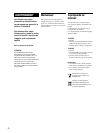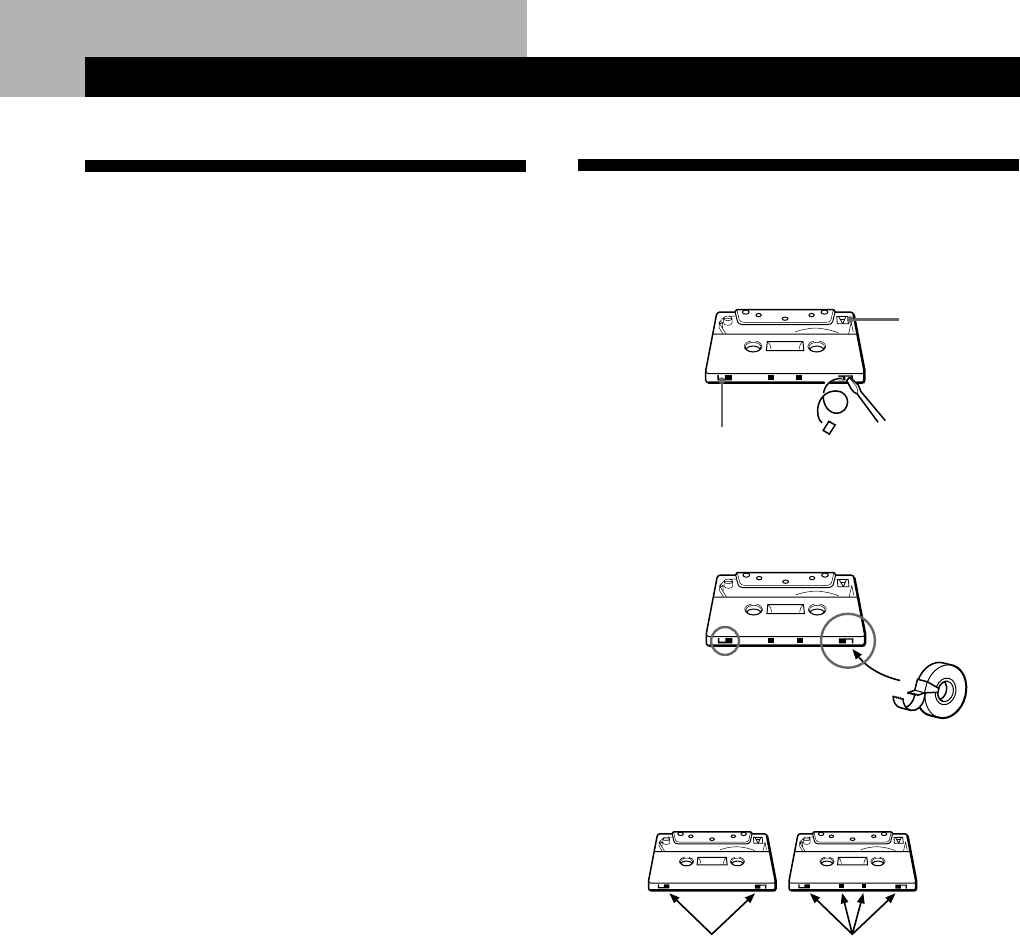
Additional Information
13
EN
Precautions
On safety
• Do not disassemble the cabinet — this may result in an
electrical shock. Refer servicing to qualified personnel only.
• Should any solid object or liquid fall into the cabinet, unplug
the tape deck and have it checked by qualified personnel
before operating it any further.
On power sources
• Before operating the tape deck, check that the operating
voltage of the tape deck is identical with your local power
supply. The operating voltage is indicated on the nameplate
at the rear of the tape deck.
• The tape deck is not disconnected from the AC power source
(mains) as long as it is connected to the wall outlet, even if
the tape deck itself has been turned off.
• If you are not going to use the tape deck for a long time, be
sure to disconnect the tape deck from the wall outlet. To
disconnect the AC power cord (mains lead), grasp the plug
itself; never pull the cord.
• Should the AC power cord (mains lead) need to be changed,
have it done at a qualified service shop only.
On placement
• Place the tape deck in a location with adequate ventilation to
prevent heat build-up in the tape deck.
• Do not place the tape deck:
— on a soft surface such as a rug that might block the
ventilation holes on the bottom.
— in a location near heat sources.
— in a place subject to direct sunlight.
— in an inclined position.
— in a place subject to excessive dust or mechanical shock.
On cleaning the tape deck
Clean the cabinet, panel and controls with a soft cloth slightly
moistened with a mild detergent solution. Do not use any type
of abrasive pad, scouring powder or solvent such as alcohol or
benzine.
If you have any questions or problems concerning your
tape deck, please consult your nearest Sony dealer.
For the customers in the U.S.A.
For detailed safety precautions, see the leaflet “IMPORTANT
SAFEGUARDS.”
Notes on Cassette Tapes
To protect the recording
Break off the respective tab for side A or B.
Side A
Tab for side B
Tab for side A
To record on a tape having a broken tab
Cover the respective tab hole for side A or B with adhesive
tape.
When you are using a type II or type IV tape, be careful not to
cover the slots that the deck uses to determine the tape type.
Type II
Type IV
Detector slots
Detector slots
On tapes longer than 90 minutes
We do not recommend the use of tapes longer than 90 minutes
except for a long continuous recording or playback. They are
very thin and tend to be stretched easily.
On handling cassettes
• To prevent the heads and tape path from getting dirty, avoid
touching the tape surface of a cassette.
• Place cassettes away from equipment with magnets, such as
speakers and amplifiers; it may cause tape distortion or erase
the recordings.
• Do not expose cassettes to direct sunlight, extremely cold
temperature or moisture.



